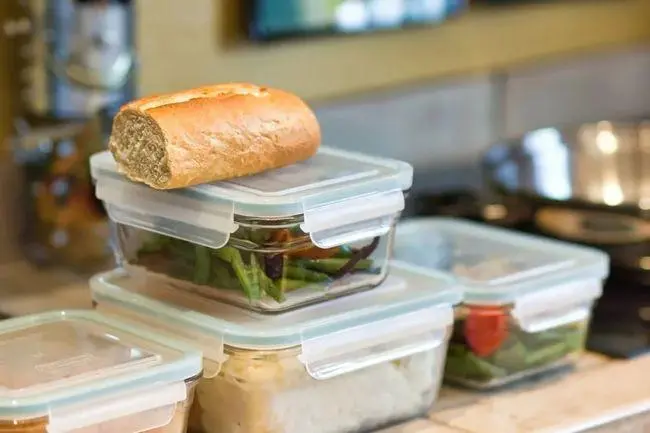The doctor reminded: If you can't finish these overnight dishes, don't be reluctant to eat them, and throw them away for your health
"I made a few extra dishes last night, can I still eat them in the fridge?" is a common confusion after a family dinner. Many people save leftovers to avoid waste, but not all dishes are suitable for overnight consumption. Some foods can be a health threat due to bacterial growth or toxin accumulation, even if refrigerated overnight.
The first thing to watch out for is leafy greens that contain a lot of water, such as spinach and lettuce. These vegetables are prone to nitrite, a compound that can be converted into harmful substances under certain conditions, after cooking.
This is followed by seafood dishes, especially shellfish and fish. Seafood tends to grow bacteria quickly when the temperature is right. Even if refrigerated, seafood can spoil if it is left out for too long after cooking. Improper consumption of seafood can not only cause food poisoning, but also allergic reactions due to the presence of harmful substances such as histamine.
Soy products, especially tofu-based foods, are also foods that need to be handled with care. Tofu and other soy products are high-quality protein sources, but their high protein content also makes them an ideal environment for bacteria to thrive. Even in refrigerated conditions, soy products should be consumed as soon as possible after cooking and avoid prolonged storage.
Some meat dishes, such as stews or grilled meats, are often considered safer to be processed at high temperatures. However, these foods can still be a breeding ground for bacteria once cooled, especially if left at room temperature for more than two hours. Therefore, even well-cooked meats should be refrigerated as soon as possible after the meal and make sure they are consumed within the next one to two days.
As for rice and pasta, they are also not a good choice for preservation. The humidity in rice can provide an environment for bacteria such as Bacillus to thrive, which can produce heat-resistant spores during the cooling of rice that are difficult to kill even if reheated.
For overnight dishes, the safest strategy is to try to avoid making excessive amounts of food. If there are indeed leftovers, the correct preservation method is key: the food should be cooled quickly and stored in the refrigerator, and attention should be paid to the type of overnight dish and the shelf life.
Healthy eating isn't just about choosing healthy ingredients, it's also about how to handle and eat them correctly. For example, overnight food should be avoided at room temperature for too long to reduce the chance of bacterial growth. When using a microwave or stove fire to reheat food, make sure that the food is at a sufficient temperature and evenly heated, which can help kill bacteria that may be present.
For families with children or adults with weakened immunity, overnight dishes should be handled with care. Children and people with weakened immune systems are more susceptible to foodborne illness, so taking extra precautions is necessary. This includes trying to avoid giving them high-risk foods that have been eaten overnight, such as seafood, soy products, and underheated meats.
In addition, understanding the basics of food preservation is key. For example, storing food in airtight containers can reduce exposure to airborne bacteria and keep food fresh. Food should be stored separately to avoid repeated exposure to the outside world due to repeated retrieval of all food.
Personal hygiene should also be taken when handling overnight dishes, such as washing hands before and after handling food, and using clean utensils and containers. These simple habits can greatly reduce the risk of food contamination and ensure that family members are eating safely.
It's just as important to develop good food buying and preparation habits. Proper planning of portion sizes at each meal can reduce the generation of leftovers. If you often have leftovers, you may want to rethink the appropriateness of the amount of food you want to prepare, adjust your food purchase and use plan, and avoid over-preparation and waste.
Through the application of these practical strategies and precautions, every household can effectively manage their food safety while reducing food waste. Proper handling of overnight dishes is not only a healthy way of life, but also a reflection of a responsible attitude towards the health of your family. This daily attention and careful management ensures that every meal is delicious and safe, making eating a part of promoting family happiness and health.
